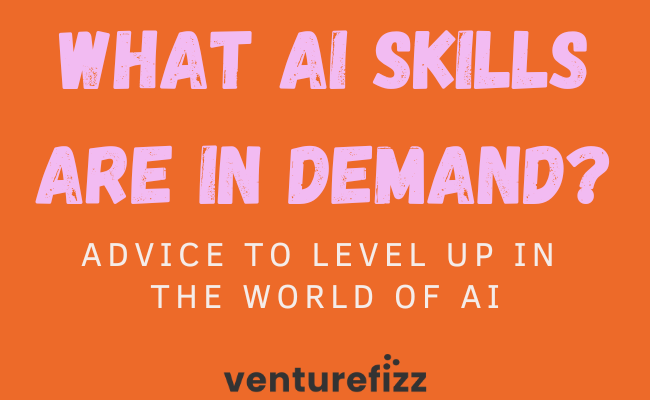AI is everywhere and it is affecting most... if not all... job functions.
As people are trying to stay current and upskill their experience in the world of AI, we are interested in understanding which AI competencies are the most sought after and for which specific positions these skills are essential.
Some companies shared their insights on what functions are seeing the most impact, and skills that are emerging as in-demand for AI roles.
Which job functions are being impacted the most by AI?
AI tools are enhancing productivity and freeing up time for employees to dedicate to other tasks. For our customer service agents, AI tools are being used to transcribe and analyze calls and chats, providing business insights and targeted performance evaluation. In sales, AI is enhancing pre-sales research, generating sales-specific content, and summarizing call engagements. This allows sales personnel to focus more on direct customer interactions and strategic tasks. For marketing, AI is being used to create, optimize, and localize content, which helps in rapid deployment and personalization, increasing customer engagement and satisfaction. Lastly, for engineering, AI tools are integrated to boost productivity by providing quick access to documentation, peer code generation, user test cases, QA and summarizing information, which accelerates development processes.
 Mark Christianson
Mark Christianson
Senior Manager, Digital Workplace & AI Strategy at ezCater
Every job function at Attensi has benefited from AI in some way. Two functions that have a strong AI focus in our Boston office are our Customer Simulation team and our Sales team.
Our Customer Simulation team utilizes our AI solutions when creating our gamified simulations, so we need individuals who have experience interacting with AI and can contextualize prompts in order to build powerful narratives and visuals.
Our Sales team has complex discussions about the value that our AI solutions can deliver, so we need commercial individuals who are able to build value cases. Not everyone understands AI, so it's our team’s responsibility to educate prospects on how our use of AI can drive meaningful change in organizations.
 Emily Barden
Emily Barden
Senior People Manager at Attensi
While there are roles that require technical AI knowledge, it’s important to note that anyone who has explored AI, kept up with new trends, or taken LinkedIn courses and YouTube tutorials can be attractive to hiring teams. It’s not just about knowing AI—it’s about embracing a growth mindset. Candidates who lead with curiosity and have a proactive approach to learning are exactly what companies need and want on their teams.
 Allison Stone
Allison Stone
Senior Talent Acquisition Partner at SmartBear
Secretaries and assistants have largely disappeared already. But I can see AI taking over tasks like scheduling. Simple copywriting, for example; catalog copy. It's more likely to replace a few parts of a much larger job, though.
We're starting to see postings for things like "prompt engineer," but there aren't that many yet. I just checked Indeed.com, and only saw 44 listings. Of course, there are many listings for jobs like AI engineer, machine learning engineer, and data engineer, but those aren't new roles.
 Mike Loukides
Mike Loukides
Vice President of Content Strategy at O'Reilly
What AI skills are in demand?
- Prompt engineering: the ability to craft effective AI prompts to get the best possible responses from AI tools.
- Data analysis and interpretation: skills in analyzing and interpreting data generated by AI tools to make informed business decisions.
- AI model training and fine-tuning: expertise in training and fine-tuning AI models with company-specific data to align outputs with brand tone and positioning.
- Automation and workflow integration: skills in integrating AI capabilities into existing business processes to streamline workflows and improve efficiency.
First and foremost, focus on learning prompt engineering. Understanding how to create effective prompts can significantly enhance the utility of AI tools in various job functions and also enable employees to be more impactful in their roles. I also recommend that Job Seekers develop their data analysis skills. The ability to interpret AI-generated data is crucial for making strategic decisions. Job Seekers should gain experience with AI tools and spend time familiarizing themselves with currently available tools and other industry-specific AI applications. Lastly, stay updated on AI trends! The AI landscape is rapidly evolving, so staying informed about the latest developments and best practices is essential.
 Mark Christianson
Mark Christianson
Senior Manager, Digital Workplace & AI Strategy at ezCater
 Allison Stone
Allison Stone
Senior Talent Acquisition Partner at SmartBear
 Mike Loukides
Mike Loukides
Vice President of Content Strategy at O'Reilly

